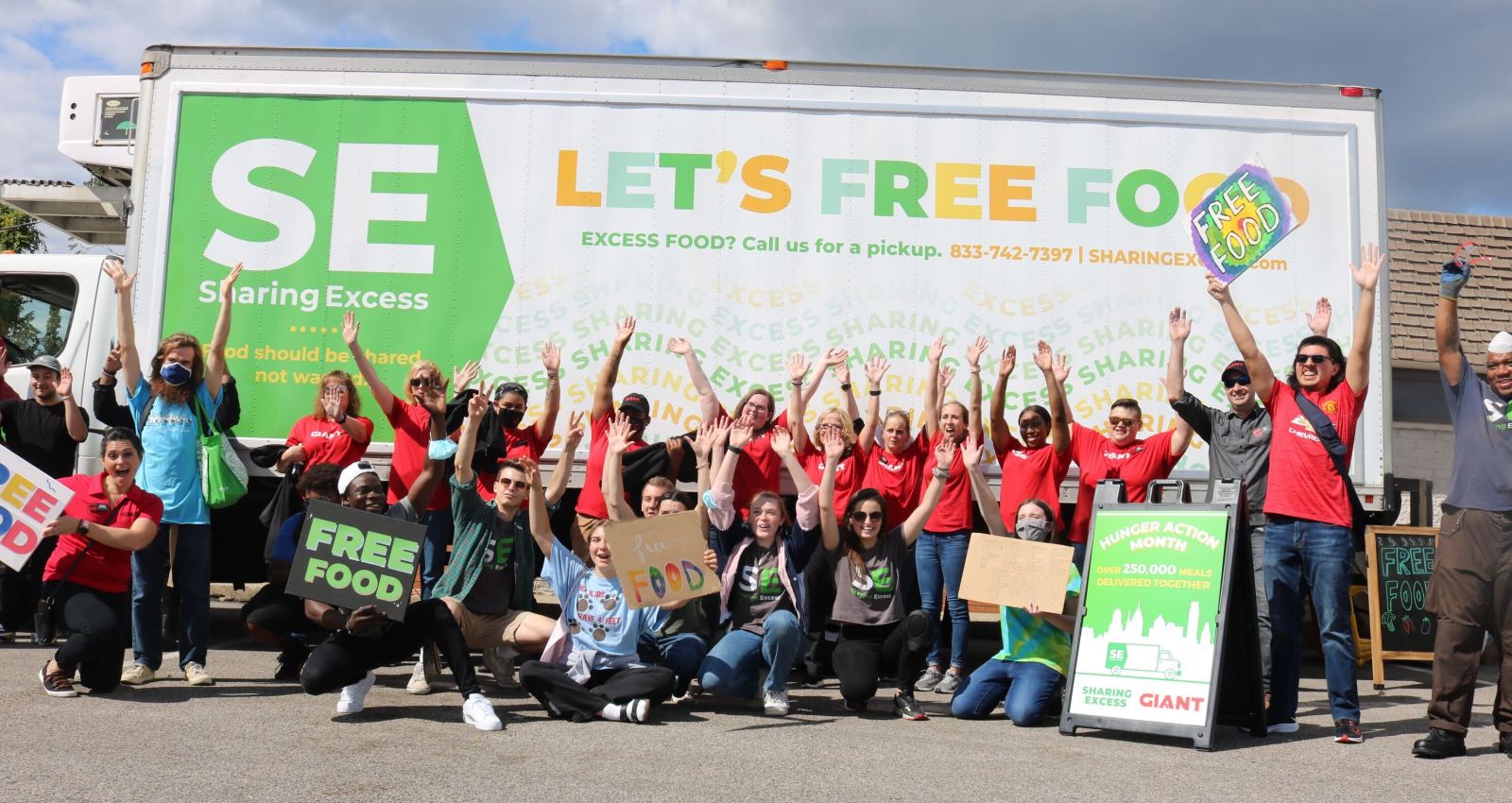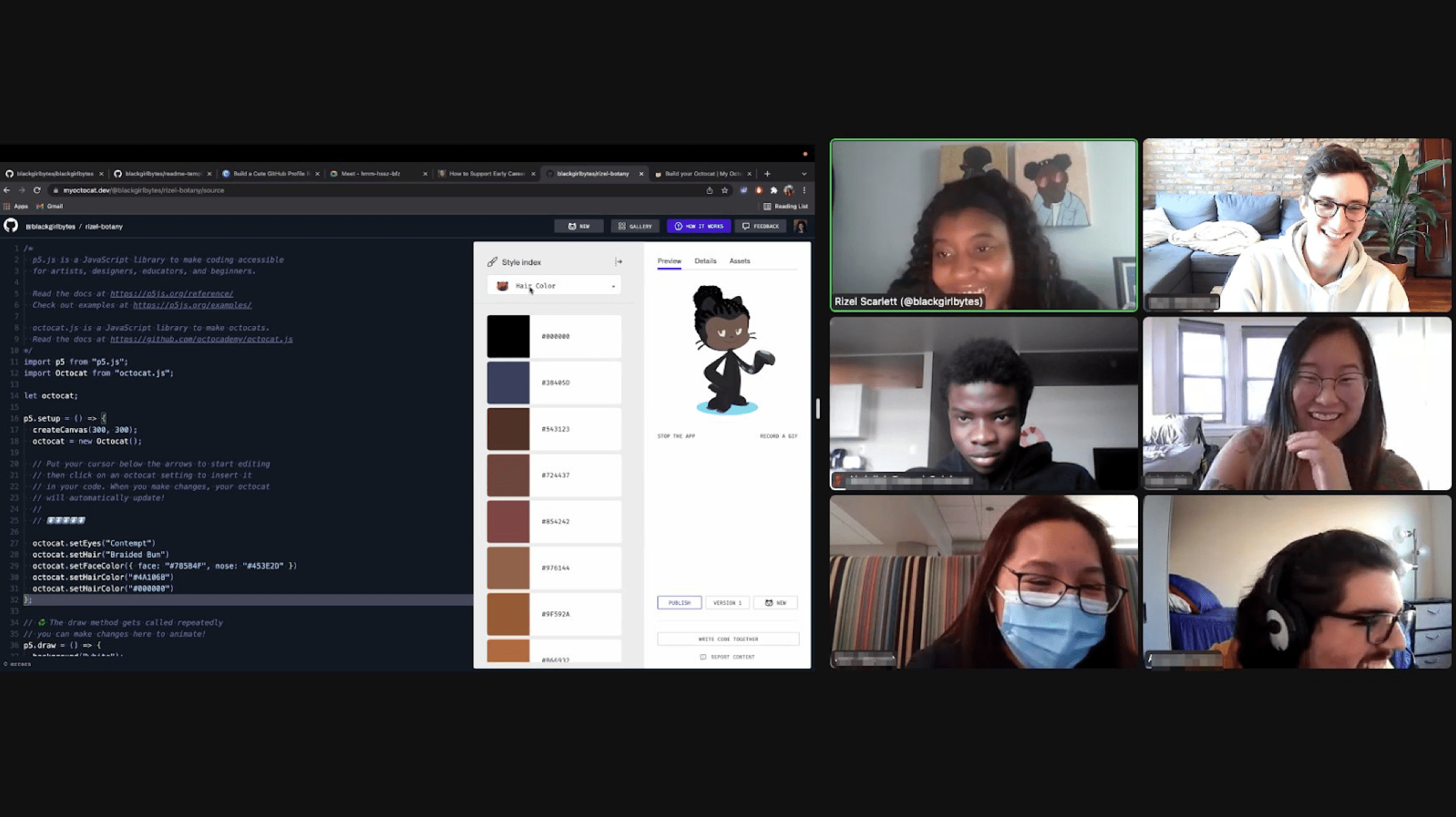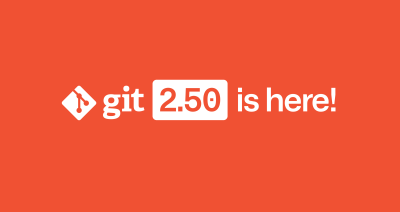Open Source Monthly – May 2022 Edition
Introduction Open Sauced, GitHub’s Explore page, Hacktoberfest, and First Timers Only help folks discover open source projects. This monthly series–Open Source Monthly—will add to these efforts by helping: First-time contributors…

Introduction
Open Sauced, GitHub’s Explore page, Hacktoberfest, and First Timers Only help folks discover open source projects. This monthly series–Open Source Monthly—will add to these efforts by helping:
- First-time contributors find the right project to contribute to
- Corporations and individuals find a new project to sponsor
- Open source maintainers gain more consistent contributors and sponsors so their community and projects can grow
I’ll also showcase an additional open source project picked by a fellow Hubber or GitHub Star that makes a positive social impact, improves developer experiences, or advances technology.
Open source project of the month: Sharing Excess
Project description
Sharing Excess, a Philadelphia-based non profit, fights food insecurity and addresses the root causes of hunger in Philadelphia, PA. The group partners with grocery stores, restaurants, wholesalers, and farmers to redistribute over 10,000 pounds of food every day that would otherwise go to waste.
When Evan Ehlers–the founder–started this organization,he was a student at Drexel College. Before heading home after completing another year at college, he realized he had unused meal swipes. Instead of letting those meal swipes go to waste, he used the remaining amount to purchase food on campus and delivered the food to folks he encountered in Center City, Philadelphia. College students from Evan’s alma mater followed suit by donating meal swipes and volunteering as drivers to deliver excess food.
To streamline deliveries, students at Drexel built an application called The Food Rescue App, which volunteer drivers use to deliver food to nonprofits and food banks (over 180 organizations since 2018!). As of December 2020, one of my mentors from Resilient Coders, Ryan McHenry, began maintaining and revamping the project. Along with student contributors, Ryan rebuilt The Food Rescue App into a Progressive Web App (PWA) with React, Redux, and Sass on the client side, while Firebase allows contributors to bundle authentication, storage, and API services.
The project continues to evolve. Ryan shared with me that he hopes to combine Sharing Excess’ efforts to solve food scarcity with food banks, think tanks, and other organizations that are doing the same thing. Rather than working on the same mission separately, he believes that partnering with similar organizations will strengthen their impact. Their partnership with Free Store 15104 is underway. Check out this repository to learn more about partnership and help move their progress forward.
I’ve personally made code and non-code contributions to this project. I added a feature that enabled drivers to reorder stops, I worked with Ryan to establish a Code of Conduct document, and I standardized issues by implementing issue templates. I also hosted a workshop showing the student contributors at Sharing Excess how to build a profile README and a custom Octocat.

How to contribute
In addition to The Food Rescue PWA, Sharing Excess maintains a public website and design system.
If their mission piques your interest and you want to get involved, you can contribute by:
- Updating their Wiki documentation
- Styling new components for their design system
- Leveraging GitHub Actions to improve their CI/CD pipeline
- Adding data and route visualizations for drivers in the food rescue app
Check out Sharing Excess on GitHub for more information on how to contribute.
Why I love this project
Sharing Excess stands out to me because its main contributors are Drexel University students, and has grown to 12 campus chapters across the U.S. Introducing open source at the collegiate level is a fantastic method to improve DEI in open source, increase access to opportunities for early-career developers, and boost the health of the overall open source ecosystem.
Side note: If you’re interested in how Github is working to improve DEI in open source and introduce open source at the collegiate level, check out GitHub Education and All In, a community dedicated to advancing diversity, equity, and inclusion within open source.
Staff pick of the month: Mulheres no mundo da tecnologia
For the fellow Portuguese developers out there, Developer Advocate, Pachi Parra’s choice for this month is one of her favorite open source projects—Mulheres no mundo da tecnologia—a non-code project written in Portuguese that highlights various women in technology.
Pachi says she chose this project because, “This is a simple yet meaningful project even though it doesn’t contain code. Open source projects and contributions don’t always have to include code! I love this project because it introduces us to various women in the history of technology. From Ada Lovelace (the mother of programming) to Nina Da Hora (a modern Brazilian computer scientist), Mulheres no mundo da tecnologia presents a diverse list that is constantly growing.”
How to contribute
If you’re interested in contributing to the list of innovative women in technology, you can check make a pull request in this repository.
Thank you, Pachi Parra, for sharing one of your favorite open source projects with us! ⭐️
Keep an eye out next month for our next round of open source projects you should know about and how to start contributing to them! Also, if you have an idea for a project that we should highlight, please fill out this form.
Written by
Related posts

Git security vulnerabilities announced
Today, the Git project released new versions to address seven security vulnerabilities that affect all prior versions of Git.

Highlights from Git 2.50
The open source Git project just released Git 2.50. Here is GitHub’s look at some of the most interesting features and changes introduced since last time.

4 trends shaping open source funding—and what they mean for maintainers
Get insights on the latest trends from GitHub experts while catching up on these exciting new projects.